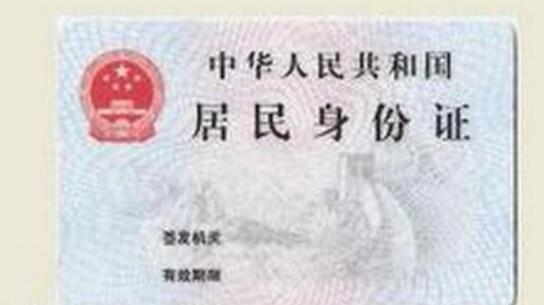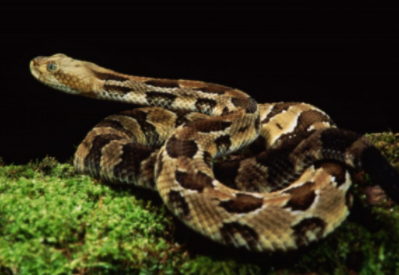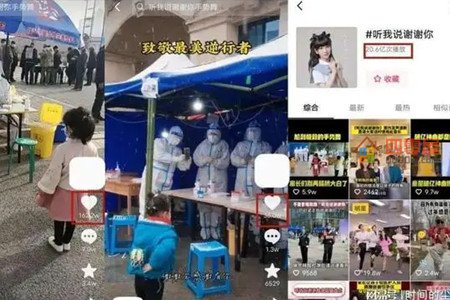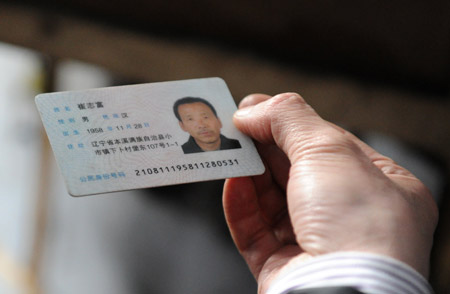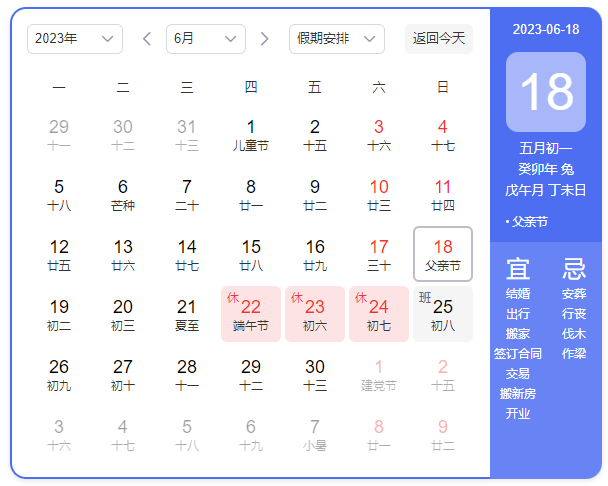七夕节的英文介绍
Double-Seventh Day
The Double-Seventh Day refers to the seventh day of the seventh month on the Chinese lunar calendar.The day is not as well known as many other Chinese festivals.But almost everyone in China,young and old,is very familiar with the story behind this festival.
A long long time ago,there was a poor cowherd,Niulang.He fell in love with Zhinu,“the Girl Weaver".Virtuous and kind,she was the most beautiful being in the whole universe.Unfortunately,the King and Queen of Heaven were furious finding out that their granddaughter had gone to the world of Man and taken a husband.Thus,the couple was separated by a wide swollen river in the sky and can only meet once a year on the seventh day of the seventh lunar month.
The poor couple of Niulang and Zhinu each became a star.Niulang is Altair and Zhinu is Vega.The wide river that keeps them apart is known as the Milky Way.On the east side of the Milky Way,Altair is the middle one of a line of three.The end ones are the twins.To the southeast are six stars in the shape of an ox.Vega is to the west of the Milky Way;the star around her form in the shape of a loom.Every year,the two stars of Altair and Vega are closest together on the seventh day of the seventh lunar month.
This sad love story has passed down from generation to generation.It is well known that very few magpies are seen on the Double-Seventh Day.This is because most of them fly to the Milky Way,where they form a bridge so that the two lovers might come together.The next day,it is seen that many magpies are bald;this is because Niulang and Zhinu walked and stood too long on the heads of their loyal feathered friends.
In ancient times,the Double-Seventh Day was a festival especially for young women.Girls,no matter from rich or poor families,would put on their holiday best to celebrate the annual meeting of the cowherd and the Girl Weaver.Parents would place an incense burner in the courtyard and lay out some fruit as offerings.Then all the girls in the family would kowtow to Niulang and Zhinu and pray for ingenuity.
In the Tang Dynasty about 1000 years ago,rich families in the capital city of Changan would set up a decorated tower in the courtyard and name it Tower of Praying for Ingenuity.They prayed for various types of ingenuity.Most girls would pray for outstanding sewing or cooking skills.In the past these were important virtues for a woman.
Girls and women would gather together in a square and look into the star-filled night sky.They would put their hands behind their backs,holding needle and thread.At the word “Start”,they would try to thread the needle.Zhinu,the Girl Weaver,would bless the one who succeeded first.
The same night,the girls and women would also display carved melons and samples of their cookies and other delicacies.During the daytime,they would skillfully carve melons into all sorts of things.Some would make a gold fish.Others preferred flowers,still others would use several melons and carve them into an exquisite building.These melons were called Hua Gua or Carved Melons.
The ladies would also show off their fried cookies made in many different shapes.They would invite the Girl Weaver to judge who was the best.Of course,Zhinu would not come down to the world because she was busy talking to Niulang after a long year of separation.These activities gave the girls and women a good opportunity to show their skills and added fun to the fesstival.
Chinese people nowadays,especially city residents,no longer hold such activities.Most young women buy their clothes from shops and most young couples share the housework.
The Double-Seventh Day is not a public holiday in China.However,it is still a day to celebrate the annual meeting of the loving couple,the Cowherd and the Girl Weaver.Not surprisingly,many people consider the Double-seventh Day the Chinese Valentines Day.
七夕节
七夕是指中国农历七月七日。这一天不像许多其他中国节日那样广为人知。但几乎每个中国人,无论老少,都非常熟悉这个节日背后的故事。
很久以前,有一个可怜的牛郎,他爱上了织女,“织女”。她善良善良,是整个宇宙中最美丽的存在。不幸的是,天王和天后发现他们的孙女去了人间并娶了一个丈夫,非常愤怒。因此,这对夫妇被天空中一条宽阔的暴涨的河流隔开,每年只能在农历七月初七见面一次。
牛郎和织女这对可怜的夫妇各自成为了一颗恒星。牛郎是牛郎星,织女是织女星。将他们隔开的宽阔河流被称为银河系。在银河系的东侧,牛郎星是三颗星中的中间一颗星。最后一颗星是双胞胎。东南是六颗牛形的恒星。织女星在银河系西部;她周围的恒星形成了织机的形状。每年,牛郎星和织女星在农历七月七日最接近。
这个悲伤的爱情故事代代相传。众所周知,很少有喜鹊在七夕那天出现。这是因为它们大多飞到银河系,在那里它们形成了一座桥,这样两个恋人就可以走到一起。第二天,人们看到很多喜鹊都秃了;这是因为牛郎和织女在他们忠诚的羽毛朋友的头上行走和站立的时间太长了。
在古代,七夕是一个特别适合年轻女性的节日。女孩们,无论贫富,为了庆祝牛郎织女的年会,他们会放上最好的节日。父母会在院子里放一个香炉,放一些水果作为祭品。然后家里所有的女孩都会向牛郎和织女磕头,祈祷他们的独创性。
在大约1000年前的唐朝,首都长安的富裕家庭会在院子里建一座装饰精美的塔,并将其命名为祈巧塔。他们祈祷各种各样的巧思。大多数女孩都会祈祷出色的缝纫或烹饪技能。在过去,这些都是女性的重要美德。
女孩和女人们聚在一个广场上,看着布满星星的夜空。她们把手放在背后,手里拿着针线。一听到“开始”字,她们就会试着穿针。织女,织女,会祝福最先成功的人。
同一天晚上,女孩们和妇女们还会展示雕刻的瓜、饼干和其他美味的样品。白天,她们会熟练地把瓜雕刻成各种各样的东西。有些人会做一条金鱼。有些人喜欢花,还有一些人会用几个瓜把它们雕刻成一座精致的建筑。这些瓜被称为花瓜或雕刻瓜。
女士们也会展示他们制作的各种形状的油炸饼干。她们会邀请织女来评判谁是最好的。当然,织女不会下凡,因为她在漫长的一年分离后正忙于与牛郎交谈。这些活动给女孩和女人们一个很好的机会来展示他们的技能,并增加了fesstival的乐趣。
现在的中国人,尤其是城市居民,不再举办这样的活动。大多数年轻女性从商店买衣服,大多数年轻夫妇分担家务。
七夕在中国不是公共假日。然而,它仍然是庆祝牛郎织女这对恩爱夫妻年会的日子。毫不奇怪,许多人认为七夕是中国的情人节。
QiQiao needle
This is the earliest QiQiao mode,and later began in han deteriorates.The fissura miscellanea,said:"the Chinese female often in July 7 colour in seven holes,people look to needle with learning."By age LiangZongMou jingchu,said:"the July 7,Pennsylvania is somebody else women wear seven self-expanding floor with gold and silver,or stone for yourself.""And",said:"all topographic exerts on July 7th layer,city of more than GongRen,put a needle.The needle floor."The five WangRenYu YiShi tianbao kaiyuan Tanabata,"said:by jin palace building,forming a hundred yards,high house can be overcome with dozens of people,Chen,fruit wine,with ZuoJu char sacrificial cow female star in nine holes,concubines to wear colors on needle thread for ever,skillfully.Move the hou qing of song,pleasures of people working.Soil is of validity.The correlations TaoZongYi yuan YuanShi records of court said:"the nine lead,QiQiao Tanabata.And,with colorful silk wear lady-in-waiting debut at first,for after finish,who was later lost the contributive to exchange,each person should be."
穿针乞巧
这是最早的乞巧方式,始于汉,流于后世。《西京杂记》说:“汉彩女常以七月七日穿七孔针于开襟楼,人具习之。”南朝梁宗谋《荆楚岁时记》说:“七月七日,是夕人家妇女结彩楼穿七孔外,或以金银愉石为针。”《舆地志》说:“齐武帝起层城观,七月七日,宫人多登之穿针。世谓之穿针楼。”五代王仁裕《开元天宝遗事》说:“七夕,宫中以锦结成楼殿,高百尺,上可以胜数十人,陈以瓜果酒炙,设坐具,以祀牛女二星,妃嫔各以九孔针五色线向月穿之,过者为得巧之侯。动清商之曲,宴乐达旦。土民之家皆效之。”元陶宗仪《元氏掖庭录》说:“九引台,七夕乞巧之所。至夕,宫女登台以五彩丝穿九尾针,先完者为得巧,迟完者谓之输巧,各出资以赠得巧者焉。”
XiZhu should be perfect
This is a QiQiao earlier,the common later in QiQiao needle,roughly in the southern.In LiangZong deloitte was alarmed by the age of chu said,"Is TingZhong in Pennsylvania,Chen melon QiQiao in hei subnet.In melon is thought operator shall."
The five WangRenYu YiShi tianbao kaiyuan "said:July 7,the spider in a small box in catching,depending on the web to xiao,dilute the secret was thought.The more the loose talk,talk less."SongChaoMeng folk also effect the Tokyo records of wei menghua elder,"said little spider July seventh in the zygote,see,if the net is the circle skillfully."Song min-soon subtle and age,"said "Small spider storage and to wait for the density and net skillfully TianRuCheng"how "of the pleasures of city,said at a small box filled with Tanabata"spider,the "network density earlier."that was Therefore,the method of inspection,and different opportunely,miniaturization of the tang dynasty,miniaturization of thin,circular is miniaturization.Did much later tang.
喜蛛应巧
这也是较早的一种乞巧方式,其俗稍晚于穿针乞巧,大致起于南北朝之时。南朝梁宗懔《荆楚岁时记》说; “是夕,陈瓜果于庭中以乞巧。有喜子网于瓜上则以为符应。”
五代王仁裕《开元天宝遗事》说:“七月七日,各捉蜘蛛于小盒中,至晓开;视蛛网稀密以为得巧之侯。密者言巧多,稀者言巧少。民间亦效之”宋朝孟元老《东京梦华录》说,七月七夕“以小蜘蛛安合子内,次日看之,若网圆正谓之得巧。”宋周密《乾淳岁时记》说;“以小蜘蛛贮合内,以候结网之疏密为得巧之多久”明田汝成《熙朝乐事》说,七夕“以小盒盛蜘蛛,次早观其结网疏密以为得巧多寡。”由此可见,历代验巧之法不同,南北朝视网之有无、唐视网之稀密,宋视网之圆正,后世多遵唐俗。
Cast needle.Check
This is the seventh QiQiao needle variants of customs,and different from needle,needle in the Ming and qing dynasties is the popular qixi.LiuDong Ming emperor,YuYi is the scenery of Beijing,said:"the lost 7 July afternoon.Womens aeration opportunely,worthy of the water,the water film pasta,embroidery needle shots at the bottom float,needle.Your heads of birds cloud content,your shoes and scissors,solanaceae water of Kilimanjaro;it refers to the nearest coarse and fine hammer of such as silk,such as axis,the wax on slow."The law also says ZhiShu zhili,liangxiang county(now Beijing southwest)",July 7,QiQiao women,in water,borrow it needle with inspection work,to QiQiao night still in the fairy "please YuMinZhong has led the jasmine of news agency,said:"YanDou miscellanea,July 7 women with violence,and their respective bowls of water under the small needle shots,xu depending on the float.Or shadows underwater,cloud,and as such,coarse linen as cones,for rent to the woman."
投针验巧
这是七夕穿针乞巧风俗的变体,源于穿针,又不同于穿针,是明清两代的盛行的七夕节俗。明刘侗、于奕正的《帝京景物略》说:“七月七日之午丢巧针。妇女曝盎水日中,顷之,水膜生面,绣针投之则浮,看水底针影。有成云物花头鸟兽影者,有成鞋及剪刀水茄影者,谓乞得巧;其影粗如锤、细如丝、直如轴蜡,此拙征矣。”《直隶志书》也说,良乡县(今北京西南)“七月七日,妇女乞巧,投针于水,借日影以验工拙,至夜仍乞巧于织女”请于敏中《日下旧闻考》引《宛署杂记》说:“燕都女子七月七日以碗水暴日下,各自投小针浮之水面,徐视水底日影。或散如花,动如云,细如线,粗租如锥,因以卜女之巧。”
A child born
The old custom,in a few days ago,the seventh in a small planks apply,sow the seeds of corn,let it gives the green seedling,put a small hut,flowers and trees in the above fields,make family small villages,called the "shell",or will mung bean,adzuki bean,wheat dip in magnetic bowl and apply bud,again with the red,blue wire rope a bundle,called "type",also called "five birth basin"or "life flowerpot".Across southern is also known as the "bubble",will grow opportunely opportunely,called the bean sprouts in bud bud needle or replace opportunely,in QiQiao surface.With wax model of image,such as cowboy,fairy tale characters,or the bald eagle,mandarin,etc,in the shape of animals,called "water water floating".And the baby dolls,wax make women buy home soil,the thought is in the son,called "im".
种生求子
旧时习俗,在七夕前几天,先在小木板上敷一层土,播下粟米的种子,让它生出绿油油的嫩苗,再摆一些小茅屋、花木在上面,做成田舍人家小村落的模样,称为“壳板”,或将绿豆、小豆、小麦等浸于磁碗中,等它长出敷寸的芽,再以红、蓝丝绳扎成一束,称为“种生”,又叫“五生盆”或“生花盆”。南方各地也称为“泡巧”,将长出的豆芽称为巧芽,甚至以巧芽取代针,抛在水面乞巧。还用蜡塑各种形象,如牛郎、织女故事中的人物,或秃鹰、鸳鸯、等动物之形,放在水上浮游,称之为“水上浮”。又有蜡制的婴儿玩偶,让妇女买回家浮于水土,以为宜子之祥,称为“化生”。
"Drink"enshrined grinding
The old folk music is grinding drink of childrens toys,qixi,namely small clay accidentally image to preach the lotus,lotus dress with half an arm.Every year in July 7,"pan of kaifeng building street east song,west door watts beam,north door outside watts,rosefinch outside street and horse street,sold in grinding,but small plastic drink TuOu ear".In the late song dynasty after grinding,is no longer drink a little TuOu,instead,the more delicate as.The size of the music,drink grinding,the biggest different attitude to three feet high,and the child to in real.The materials are made by DiaoLou ivory carvings LongYan or use perfume,berganottin grinding of drink,but as the top,with delicate woodcarving,coloured drawing or pattern for the column with a red or green sand covered when,cage in the toy is more gold jewels adornment,a pair of grinding drink as cost of money.Provides the Tanabata QiQiao figure axis.
“饮料”供奉研磨
古老的民间音乐是磨饮的儿童玩具,七喜,即小泥偶像传莲花,莲花半臂裙。每年七月七日,“开封楼东街潘,西门瓦梁,北门外瓦,朱雀外街马街,卖在磨,但小塑饮土瓯耳”。宋末磨后,不再是喝一点土瓯,而是更细腻如水。音乐的大小,酒的研磨,最大的不同姿态是三尺高,和孩子要真实。材料都是雕楼象牙雕刻的龙颜或用香水、佛手柑研磨的饮料,而是作为顶部,用细腻的木雕、彩绘或图案为柱子涂上红或绿的沙子时,玩具中的笼子是更多的黄金首饰装饰,一对磨饮为代价。提供七夕奇巧人物轴。
Worship vega
"The fairy maiden"pure is the worship of the young woman,.They are mostly in advance and his friends and neighbors who are about six good,to 10 people,jointly.The ceremony was held in the moonlight bottom,a table,tea,wine,fruit for abital,longan,red jujube,(hazel,peanuts,melon seeds)offering;There are flowers and a few,red paper,the bottle,flower lead a small bowls.Then,a woman to worship the fairy,girls,fast,bath for one time to host the house,in AnQian for religious worship,sitting at the table,together eat peanuts,melon seeds,one side,silently towards vega their mind.Girls like to marry a pretty or young people hope,with precious,early to vega prayed.Play until midnight beginning.
拜织女
“仙娘子”是对年轻女子的崇拜,。他们大多是提前和自己的朋友、邻居约六好,到十个人一起,共同举行的。仪式在月光下举行,一桌茶、酒、水果为食,桂圆、红枣、(榛子、花生、瓜子)供奉;有花和几朵,红纸,瓶子,花牵着一小碗。然后,一个女人来祭拜仙女,女孩们,斋戒,洗一次澡来主持房子,在安前做宗教礼拜,坐在桌子旁,一起吃花生,瓜子,一边,默默地向织女念想。女孩们喜欢嫁一个漂亮的或年轻人希望的,用珍贵的,早点向织女祈祷。玩到半夜开始。
Worship kuixing
On July 7th kuixing pass is vulgar.Wen,want to kuixing achievement for the reader,so certain special kuixing reverence for worship in his seventh day,his exam shipped to prosper.Bless Mai is chief dou kuixing star,28,the KuiXing accommodation for the big dipper,also the first star kuixing or KuiShou.In ancient scholars said "scholar"or "corporal pq days did",because of the palm exam kuixing.
According to the folk tale,kuixing ye were full face looks strange ugly,and a lame spots.Someone then wrote a limerick to make fun of him:what act the role ofing,raise even while also dont hide.Marry to MaGu into two beauty,no difference than bees room fruit.A man following claws,beside the muzzle on the sand.Mos eaves,before the wind;napping foreheads fell plum.The prince is jade toe,step by step to high.Each body to dance,rather like the flowing in degrees.The road is only edge leans risks,and tired footsteps do side.MoXiao waist branches often half fold,temporary swaying also.
However,the elders ambition,kuixing assiduous study,unexpectedly high school.The emperor DianShi,ask him how he is all spots on baby pits replied:"Asked why he is lame foot,he replied:"only feet jump longmen".The emperor was very satisfied,they hired him.
A completely different legends,though disgruntled kuixing ye said before,but not every exam,he threw himself to grief.Conclusion was rescued by heaven,became a turtle fish kuixing.Because the literati kuixing can control on July 7,so hes birthday,inparticular solemnly itself.
拜魁星
七月七日的魁星关是俗的。文,想为读者成就魁星,所以对魁星有某种特殊的崇敬之情,在他第七天祭拜,他的考试运得很旺。祝福麦是主将斗魁星,28岁,魁星宿北斗,也是第一星魁星或魁首。在古代学者中说“秀才”或“下士天做魁星”,是因为掌考魁星。
据民间传说,魁星爷长得全脸怪丑,还有一个跛脚的斑点。于是有人写了一首打油诗调侃他:演什么戏,养什么也不躲。嫁给马姑成两个美人,无异于蜂房果。一个男人跟着爪子,在枪口旁的沙子上。摩丝屋檐,在风前;打盹的额头落下了梅花。王子是玉趾,一步一个脚印地高高。每一个身体都在舞动,颇似流淌在度中。路只缘倾险,疲惫的脚步做侧。莫箫腰枝常常半折,一时也摇曳。
可是,长辈们志存高远,魁星刻苦学习,竟然上了高中。皇帝殿石问他怎么都是小窝上的斑点,回答说:“问他为什么是跛脚,他回答说:”只有脚跳龙门“。皇帝很满意,就录用了他。
一个完全不同的传说,虽然不满的奎星爷之前说过,但并不是每次考试,他都会自怨自艾。结论被上天救了出来,变成了龟鱼奎星。因为文人奎星可以控制七月七日,所以他的生日,特别是庄严本身。
Holiday calendar
The origin of the Qixi Qixi Festival is related to the folk story of the cowherd and the weaver girl. Its earliest origin may be in the Spring and Autumn Period and the Warring States Period, such as the Book of Songs - Dadong: "wrestling with the other weaver girl, seven xiangs all day long. Although seven xiangs are not made into clothes, they are arrogant about the other cowherd, and do not recognize the clothing box." There is also the Ming Dynasty Luo Qis "Source of Things" that said: "King Huai of Chu first set up Qixi." But at that time, Qixi was a sacrifice to Altair and Vega, and there was no later story. It was not until the Han Dynasty that its details were linked to the story of Cowherd and Weaver Girl, and it officially became a festival for women. For example, according to the General Customs written by Ying Shao of the Eastern Han Dynasty, "The Weaver Maid crosses the river on Qixi, making the magpie a bridge." Another example is the Miscellaneous Records of Xijing, "The colorful women of the Han Dynasty often wear seven hole needles on the Kaijin Tower on July 7, all of whom are accustomed to it."
节日来历
七夕七夕节的来历与民间流传的牛郎与织女的故事有关,它最早的渊源可能在春秋战国时期,如《诗经·大东》:“跤彼织女,终日七襄。虽则七襄,不成服章;睨彼牵牛,不认服箱。”还有明代罗颀《物源》曰:“楚怀王初置七夕。”不过那时候的七夕,是祭祀牵牛星、织女星,并无后面的故事。直到汉代,其细节才与牛郎织女的故事联系起来,并且正式成为属于妇女的节日。如东汉应劭撰的《风俗通》载:“织女七夕当渡河,使鹊为桥。”又如《西京杂记》载:“汉彩女常以七月七日穿七孔针于开襟楼,俱以习之。”
Festive food
The eating customs of Qixi Festival vary from place to place, and are generally called "eating skillfully". The word "skillful" vividly reflects the uniqueness of Qixis food customs, and expresses peoples good wishes for dexterity, family health and a happy life.
Qiaoguo: Qiaoguo is the most famous festival food on Qixi Festival. Qiaoguo, also known as "Qiaoguo", has a wide variety of styles. "Qiqiao Fruit" is a traditional sacrifice and beauty spot of the Qixi Festival. In the evening of Qixi Festival, people brought "Qiqiao Fruit" to the courtyard, and the whole family sat around to taste the craftsmanship of being a "Qiqiao Fruit" person. Nowadays, this custom has disappeared in many places, and the traditional food of "Qiqiao Fruit" has also evolved into various types of pastries. There are many styles of Qiaoguo, with the main materials being oil, noodles, sugar, and honey. In addition, there are various variations in the fruits and melons used in begging for cleverness: either carving the fruits and melons into strange flowers and birds, or embossing patterns on the surface of the melon skin; This type of melon is called a "flower melon".
Crispy Candy: In some pastry shops in China, on this day, people also need to make some crispy candies with the image of a Weaver Girl, commonly known as "Qiao Ren" or "Qiao Su". When sold, it is also known as "Sending Qiao Ren". It is believed that people who eat this type of "crispy candy" will become clever and skillful.
Qiaoqiao Rice: In Shandong, China, on this day, Qiaoqiao Rice is eaten. The custom of begging for Qiaoqiao is very interesting: seven good girls gather grain, gather vegetables, make dumplings, and wrap a copper coin, a needle, and a red date into three dumplings. After the Qiaoqiao activity, they gather together to eat dumplings. Legend has it that those who eat money are blessed, those who eat needles are skillful, and those who eat dates get married early.
Melons and fruits: In Fujian, during the Qixi Festival, the Weaver Maid should enjoy and taste the fruits, so that she can bless the harvest of fruits in the coming year. The offerings include tea, wine, fresh fruits, five seeds (longan, red dates, hazelnuts, peanuts, melon seeds), flowers, and pollen for womens makeup. Usually, after fasting and bathing, everyone takes turns burning incense and worshipping at the altar, silently praying for their wishes.
应节食品
七夕节的饮食风俗,各地不尽相同,一般都称其为吃巧食。一个“巧”字形象地道出了七夕食俗的独特之处,表达出了人们追求心灵手巧、合家安康、生活美满的美好愿望。
巧果:七夕乞巧的应节食品,以巧果最为有名。巧果又叫“乞巧果子”,款式极多。“乞巧果子”是七夕节的传统祭品和美点。七夕晚上人们把“乞巧果子”端到庭院,全家人围坐,品尝做“巧果”人的手艺。现在这种习俗在许多地方都已经不流传了,“乞巧果子”这种传统食品,也演变成多种花色糕点。巧果款式极多,主要的材料是油、面、糖、蜜。此外,乞巧时用的瓜果也有多种变化:或将瓜果雕成奇花异鸟,或在瓜皮表面浮雕图案;此种瓜果称为“花瓜”。
酥糖:在中国一些地方的糕点铺,这一天还要制作一些织女形象的酥糖,俗称“巧人”“巧酥”,出售时又称为“送巧人”,民间认为,吃了这种“酥糖”的人会变得心灵手巧。
巧巧饭:在中国山东,这一天要吃巧巧饭,乞巧的风俗十分有趣:七个要好的姑娘集粮集菜包饺子,把一枚铜钱、一根针和一个红枣分别包到三个水饺里,乞巧活动以后,她们聚在一起吃水饺,传说吃到钱的有福,吃到针的手巧,吃到枣的早婚。
瓜果:在福建,七夕节时要让织女欣赏、品尝瓜果,以求她保佑来年瓜果丰收。供品包括茶、酒、新鲜水果、五子(桂圆、红枣、榛子、花生、瓜子)、鲜花和妇女化妆用的花粉。一般是斋戒沐浴后,大家轮流在供桌前焚香祭拜,默祷心愿。
Local customs
Jiangnan
Embroidery girls in Jiangnan will gently place an embroidery needle on a bowl of water under the moonlight at night, and use the surface tension of the water to float the needle. Under the moonlight, water ripples will appear around the needle. Which ripple is the most complex will produce the best embroidery work. Sometimes, the needle is wearing red silk, which is also a "trick" from the Seven Fairies. Lin Jie, a poet of the Tang Dynasty, said in his poem "Begging for Skills": "On Qixi night, I will watch the green night, the cowherd and the weaver girl will cross the river bridge, and every family will beg for skills to watch the autumn moon, wearing tens of thousands of red silk."
southwest
The Qixi custom in the southwest of China. Young girls wash their hair with the sap of trees mixed with water during festivals. Legend has it that this can be young and beautiful, and for unmarried women, it also means finding the right husband.
Jiaodong
In Jiaodong, most people worship Sister Qishen on Qixi. The women put on new clothes and gathered together to form seven sisters; Girls make cakes and steamed buns with flowers, such as peonies, lotus, plum, orchids, and chrysanthemums, called Qiaobing, to worship the Weaver Girl.
Guangdong
In Guangdong, people start preparing in June by soaking rice, wheat grains, mung beans, etc. in porcelain bowls and waiting for them to sprout. Near the Qixi Festival, a magpie bridge will be built, and various exquisite handicrafts will be made. On the night of Qixi, people put the Eight Immortals Table in the hall, with various wonderful fruit and flower products and needlework.
Minnan
In southern Fujian, locals refer to Zhinu as the "Seven Mother Mother", a god who protects childrens safety. It is the custom in southern Fujian to eat pomegranate, boiled eggs and meat by envoys, and brown sugar and glutinous rice on Qixi Day to drive away insects and prevent plague.
Hebei (Neiqiu)
The temple fair in Neiqiu County on the seventh day of the seventh lunar month is a rare temple fair in the country, set up to worship the meeting of Cowherd, Weaver Girl, and Magpie Bridge. The main ritual of temple fairs is to worship the ceiling and ceiling. The ceiling and ceiling are opened in front of the Jade Emperor Temple, and offerings such as dragon sedan chairs, dragon robes, and colorful clothes and shoes are placed around. The pilgrims burn incense and worship in front of the ceiling and ceiling day and night, and play instruments to recite their self-made stories and folk songs of the Cowherd and Weaver Girl. During the temple fair, the most popular one is the singing of gods, which takes turns performing traditional love dramas such as "Lihua Bridge", "Xixiang Ji", "Da Jin Zhi", "Ba Yi", "Pai Hua Gun", etc. It lasts for 5 to 7 days. On the evening of the seventh day of the seventh lunar month, it is necessary to sing "Tian He Pai", also known as "Niulang Pai Zhi Nu". After the temple ceremony, all offerings will be burned and the temple fair will end.
Hong Kong
At present, in Hong Kong, many families still retain their traditional customs and purchase "Seven Sister Clothes" from a paper shop on the day of Seven Sisters birthday, which is used to worship Seven Sister that night. And women in the past also used items such as spiders, peas, or mung beans during their worship to pray for the seventh sister to hint whether they could pass on their craft.
There are two Seven Sisters Temples in Pingzhou and Sai Kung, respectively. The Seven Sisters Temple in Pingzhou is called the Xian Sisters Temple, and there are still many kind-hearted believers visiting to worship Seven Sisters on the sixth day of July every year.
Taiwan
July 7th is also the birthday of "Qiniangma". Qiniangma is the protective god of children, and bedmother is the protective god of young children. Taiwanese people have the custom of worshipping "bedmother", and families with young children worship bedmother on this evening. They also burn paper money "Sifang Jin" (or "Jianjin") and "bedmother clothes". In addition to the sixteen year old bar mitzvah in Tainan and Lugang, the traditional Qixi folk activities in Taiwan have gradually declined. However, with the support of temple propaganda and local government, more and more people have participated in Qixi folk activities in recent years.
Nowadays, Qixi is mostly hyped by businessmen, becoming a commercial Qixi Valentines Day, and motels have become a popular place for dating.
Japan
After the Meiji Restoration, Japan changed the seventh day of the seventh lunar month to the seventh day of the seventh lunar month to celebrate. The seventh day of the seventh month of the lunar calendar is called "Old Qixi".
Korean Peninsula
The custom of the Korean era was for children to write poetry based on the materials of the Cowherd and the Weaver Girl, and there were also those who prayed to the Big Dipper for longevity and happiness.
各地习俗
江南
江南的刺绣女孩会在夜晚月光下,将一根绣花针轻轻放到一碗水面上,借助水的表面张力将针托浮,在月光照射下,针周围会出现水波纹,哪一个波纹最复杂,就会绣出最好的作品,有时针上穿有红丝,也是向七仙女“乞巧”。唐代诗人林杰的诗《乞巧》说:“七夕今宵看碧宵,牛郎织女渡河桥,家家乞巧望秋月,穿尽红丝几万条。”
西南
染指甲西南一带的七夕习俗。年轻姑娘们在节日时用树的液浆兑水洗头发,传说这样可以年轻美丽,对未婚女子而言还意味着找到如意郎君。
胶东
胶东地区则多在七夕拜七神姐。妇女们穿上新装,欢聚一堂、盟结七姐妹;少女们则制作牡丹、莲、梅、兰、菊等带花的饼馍食品,称巧饼,用来祭祀织女。
广东
在广东,人们六月便开始准备,把稻谷、麦粒、绿豆等浸在瓷碗里等待发芽。临近七夕便扎糊起一座鹊桥,还会制作各种精美的手工艺品。七夕之夜,人们在厅堂中摆放八仙桌,摆上各种精彩纷呈的花果制品和女红巧物。
闽南
在闽南,当地人把织女称为“七娘妈”,是保护孩子平安的神。闽南的习俗在七夕这天吃石榴和使君子煮蛋、肉,以及红糖糯米饭以驱虫防瘟疫。
河北(内丘)
农历七月七内丘县城庙会,作为祭祀牛郎织女鹊桥相会而设的庙会,在全国非常罕见。庙会祭祀的重头戏是拜天棚地棚,在玉皇庙前展开天棚地棚,在周围摆放龙轿、龙袍、彩衣彩鞋等供品,香客们不分昼夜,在天棚地棚前焚香朝拜,并敲打乐器念唱他们自编的牛郎织女的故事、俗曲。庙会期间最有人气的要算是唱神戏,轮番演出传统爱情剧目《抬花桥》、《西厢记》、《打金枝》、《八件衣》、《对花枪》等,一直演5至7天,七月初七晚必唱《天河配》,又称《牛郎配织女》。等刹戏后,焚化所有祭品,称落棚,庙会结束。
香港
现时在香港,仍然有不少家庭保留过往的传统习俗,于七姐诞当日到纸扎店购买“七姐衣”,于当晚用来拜祭七姐。而过往日子的妇女,亦有在拜祭之时利用小蜘蛛、豌豆或绿豆等物品,祈求七姐暗示能否传得手艺。
在坪洲及西贡,分别有两间七姐庙,坪洲的七姐庙名为仙姊庙,每年七月初六仍有不少善信前往拜七姐。
台湾
七月七也是“七娘妈”的诞辰,七娘妈是儿童的保护神,床母是幼儿的保护神,台湾人有拜“床母”的习俗,有幼儿的家庭便在这晚祭拜床母,还会焚烧纸钱“四方金”(或“刈金”)和“床母衣”。除了在台南、鹿港还保有做十六岁成年礼,传统七夕民俗活动在台湾已日渐式微,但在庙方宣传和地方政府的支持下,近年有越来越多的民众参与七夕民俗活动。
现今七夕大多被商人炒作,变成商业化的七夕情人节,汽车旅馆成为约会的热门去处。
日本
日本在明治维新之后便把农历七月初七改为公历七月七日庆祝。阴历的七月七日被称为“旧七夕”。
朝鲜半岛
朝鲜时代的风俗是孩子们以牛郎和织女为素材作诗,另外亦有向北斗七星祈求长寿与幸福。
